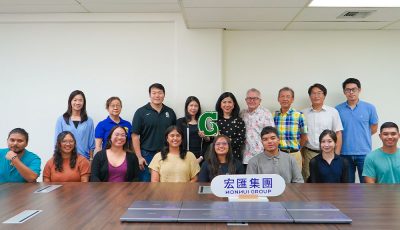Create a sustainable future for CNMI’s energy needs
By MINA H. YU
Special to the Saipan Tribune
The CNMI meets nearly all of its energy needs through importing petroleum products, a dependence that is undesirable politically, financially, and environmentally. Oil imports typically come from countries the U.S. State Department has deemed “dangerous or unstable,” which means we are financing unfriendly regimes. Furthermore, diesel-fueled electric power plants like CUC’s have high maintenance and operating costs, and the U.S. Energy Information Administration reports that fuel surcharges on electricity in the CNMI have ranged from $0.24 to $0.48/kWh in recent years. Environmentally, these plants and petroleum products rely on non-renewable sources and are high contributors to carbon dioxide and other harmful emissions.
For islands with access to abundant renewable sources for solar, wind, and geothermal energy, the CNMI’s dependence on petroleum imports seems incongruous, and the problematic nature of this dependence has not been lost on our political leaders. In 2007, our Legislature passed Public Law 15-87, requiring 40 percent of net electricity sales to be from renewable sources by Dec. 31, 2012, and 80 percent by Dec. 31, 2014. Additionally, the Governor’s Office established the CNMI’s Energy Task Force in 2012. In 2013, the Task Force issued the CNMI Strategic Energy Plan, which included recommendations for further research to screen potential solar and wind farm locations, conduct feasibility studies on geothermal and waste-to-energy initiatives, and evaluate biodiesel feedstock production or procurement. Thus we see that the CNMI has been taking steps to address its energy problem; however, the 40 percent goal set forth by P.L. 15-87, still in effect today, was not met in 2012. Moreover, with further research still being recommended by the Task Force, we need to reassess what actions have been taken so far and determine where to go from here. Below are several suggestions.
Our legislators should amend P.L. 15-87 to reflect a more realistic renewable portfolio standard and accompanying timeline. While the goals of the law are commendable, it is not conceivable that we will meet the 80 percent goal in 13 months. Additionally, the majority of American states have renewable fuel standards of 20 percent by 2020. Amending P.L. 15-87 allows the CNMI to work toward attainable goals and also allows the public to hold our leaders accountable.
The public can urge our leaders to keep CUC’s renewable energy integration study on track, as prompt issuance of the study will be in the CNMI’s best interest. There are currently a few major renewable energy contracts under public scrutiny, but Gov Eloy Inos stated recently that the Legislature is awaiting CUC’s issuance of the long-awaited integration study, which will allow for formal proposals of renewable energy plans. Governor Inos has stated that the report is nearing its completion, and local papers report that investors are essentially knocking at the CNMI’s door with unsolicited proposals.
Finally, while political pressures are needed, successfully addressing the CNMI’s petroleum import dependence will also require changes made at the individual and household levels. Air conditioning is a major source of the CNMI’s energy use, and the Strategic Energy Plan made recommendations of seeking out alternative cooling methods such as solar-powered air conditioning units and ceiling fans. Furthermore, installing a cool roof can help regulate indoor temperatures. The Department of Public Works offers a Residential Cool Roof Rebate Program to assist homeowners in this endeavor. An Energy Star Rebate Program also assists homeowners to replace inefficient appliances with Energy Star-rated appliances. There are other simple changes we can make to reduce our energy consumption, such as switching to energy-efficient bulbs, driving less and carpooling, air drying laundry, and unplugging or shutting off power strips to which TVs, computers, and other similar devices are connected while not in use.
We are all familiar with the economic impacts of our dependency on fuel imports through gas prices and CUC bills, but the environmental impacts may not be as easily discerned. Carbon dioxide and other harmful emissions seem like abstract concepts, but the impacts of these on the CNMI’s environment can be seen in sea level rise, marine ecosystem degradation, ocean acidification and coral bleaching, and changes in tropical storms. The CNMI needs to develop a future that is economically and environmentally sustainable, and increasing the use of and support for localized renewable fuel sources is a major step forward in creating this future.
Mina H. Yu is a former resident of the CNMI and is a 2014 master of Public Policy candidate at the Goldman School of Public Policy, University of California at Berkeley.





















